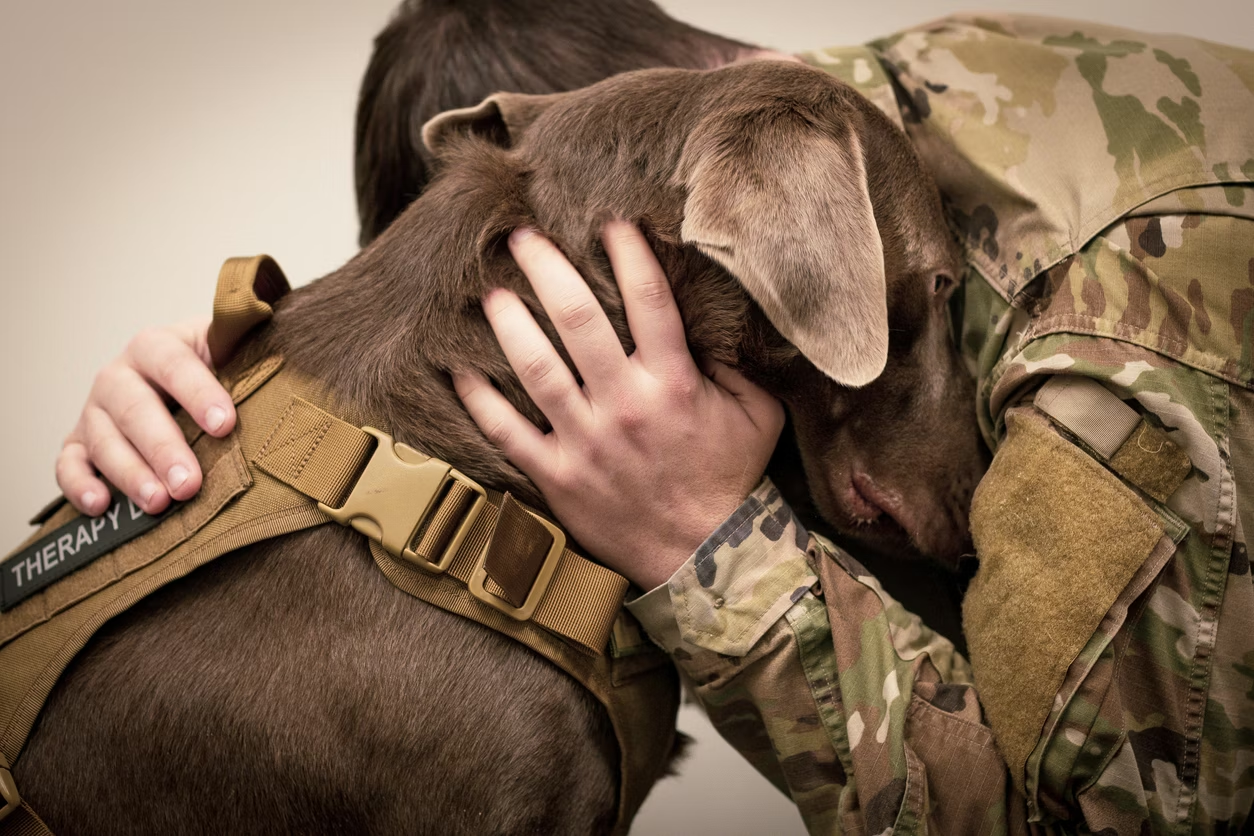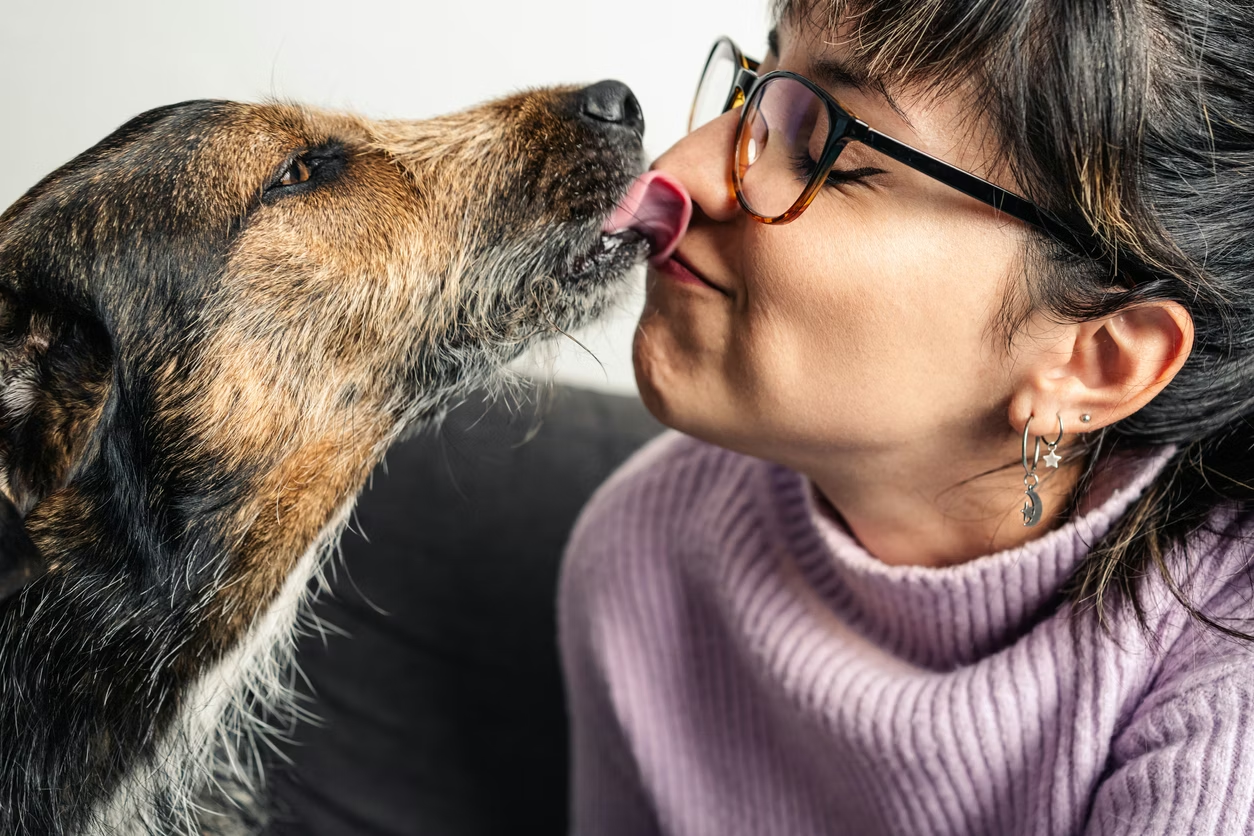Therapy dogs and cats have emerged as invaluable support systems during stressful or challenging times. These special pets provide solace and contribute to improved mental health for the humans whose lives they touch. But while any pet can provide mental health benefits, not every dog or cat is suitable to be a therapy pet. So, let’s dive into therapy pets’ different roles and uncover what characteristics make them succeed in this important job.

What is a therapy pet?
Research shows that pets positively affect people’s physical and mental health and overall quality of life. In fact, just petting a dog can lower stress hormones and release "feel good" chemicals in the brain. So, it’s no surprise that many people choose to make pets a part of their lives. However, beyond the role of family pet or emotional support animal, dogs and cats perform specific work as therapy pets.
Therapy pets accompany their handlers to places like nursing homes, hospitals, classrooms, courtrooms, or other settings so they can provide comfort to people. For example, a therapy pet may go to a school to help relieve stress and anxiety among students during exams. Or they may go to an assisted living facility to help boost the residents’ moods and alleviate loneliness. Some therapy pets even play a role in disaster relief efforts, providing a needed distraction to those who have suffered a great loss.
If you’re interested in being part of a therapy team with your dog or cat—or would like your next pet to be one well-suited for therapy work—it’s important to understand what it takes for a therapy pet to be successful.
Qualities of a good therapy dog
Not every dog is cut out for therapy work. Ideal therapy dogs possess several essential qualities, including:
- Relaxed temperament: Therapy dogs should remain calm in unfamiliar situations and not get easily spooked by unexpected sounds or environments. An anxious, reactive dog or one that plays too excitedly is not likely a good fit for therapy work.
- Good social skills: Therapy dogs must be friendly and enjoy interacting with strangers in different age groups and settings.
- Basic obedience: The ability to walk on a leash and reliably follow common commands is essential for the safety of pets and people.

Qualities of a good therapy cat
Just like dogs, therapy cats should exhibit specific characteristics. These include:
- Calm demeanor: A good therapy cat is relaxed and confident, with minimal reactivity to noises or sudden movements.
- Affectionate: A cat that seeks out attention and likes to cuddle with others is often a good candidate for therapy work.
- Tolerance of handling: Therapy cats should accept petting or other contact by various individuals, including children.
Breeds that make excellent therapy pets
Every pet is different—that’s what makes them so lovable! Still, while there are no guarantees, the breeds below are likely to perform well as therapy pets due to their overall demeanors.
Dogs
- Golden Retriever: These friendly and empathetic dogs are known for their gentle nature and emotional intelligence.
- Labrador Retriever: Labs are outgoing, trainable, and excel at providing comfort and support.
- Cavalier King Charles Spaniel: These dogs are affectionate and thrive on human interaction, making them great therapy companions.
- Beagle: Beagles are friendly, adaptable dogs, and their easygoing nature makes them well-suited for various locations and situations.
- Poodle: Poodles are highly intelligent and often a good choice for people with allergies. Add to that their versatility and willingness to please, and it’s clear why so many excel as therapy dogs.
Cats
- Ragdoll: Ragdolls have a docile nature, are great with kids, and usually love being held—all qualities that make them excellent therapy pets.
- Maine Coon: These gentle giants are affectionate and enjoy being around people.
- Siamese: Siamese cats are social and vocal. They form strong bonds with their pet parents and bring joy to those who spend time with them.
- Persian: With their sweet, low-key nature and adaptable personalities, Persians make wonderful therapy companions.
- Sphynx: Sphynx get along with just about everyone. And, since they are nearly bald, they may be a good choice for people with cat allergies.
These are just a few breeds that may be a good match for therapy work. Many breeds possess similar dispositions, so if there are other breeds you’d like to consider, some dog and cat breed research will go a long way. And don’t forget about mixed-breed dogs and cats, which can also make outstanding therapy pets. The most important factor is not a pet’s breed but their qualities and characteristics.















